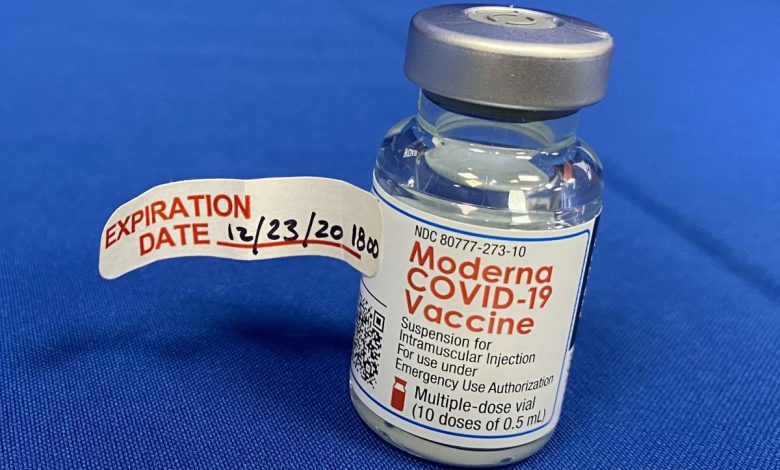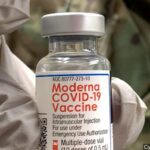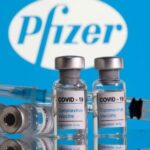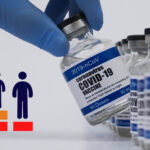How Long Do Side Effects Of Moderna Vaccine Last?

The FDA granted the Moderna vaccine (brand name: Spikevax) full approval for people 18 and older in January 2022, upgrading the vaccine’s EUA, which was granted in December 2020 (a week after Pfizer-BioNTech). Moderna uses the same mRNA technology as Pfizer-BioNTech and had a similarly high efficacy at preventing symptomatic disease when the companies applied for authorization; it also needs to be stored in freezer-level temperatures. Anyone ages 18 and older can get the Moderna vaccine.
How it works: Similar to the Pfizer vaccine, this is an mRNA vaccine that sends the body’s cells instructions for making a spike protein that will train the immune system to recognize it. The immune system will then attack the spike protein the next time it sees one (attached to the actual SARS CoV-2 virus).
How well it works: Moderna’s initial Phase 3 clinical data in December 2020 was similar to Pfizer-BioNTech’s—at that point, both vaccines showed about 95% efficacy.
How well it works on virus variants: Scientists are still learning about how effective the Moderna vaccine is against Omicron. Early this year, the CDC has published data that showed the mRNA booster shots provided significant protection against hospitalization from Omicron, and can reduce the risk of going to the emergency room or urgent care clinic. Additional data from the CDC in February suggested that mRNA booster effectiveness against hospitalization and visits to emergency room or urgent care centers wanes after about four months.
Who Should NOT Get Vaccinated
• If you have had a severe allergic reaction to any ingredient in an mRNA COVID-19 vaccine (such as polyethylene glycol), you should not get an mRNA COVID-19 vaccine (Moderna or Pfizer-BioNTech).
• If you had a severe allergic reaction after getting the first dose of an mRNA COVID-19 vaccine, you should not get a second dose of either of the mRNA COVID-19 vaccines (Moderna or Pfizer-BioNTech).
• A severe allergic reaction can cause a rapid heartbeat, difficulty breathing, swelling of the throat, or a generalized rash or hives. A person with a severe allergic reaction needs to be treated with epinephrine (often given as an EpiPen®) and should seek immediate medical attention.
If you cannot get an mRNA COVID-19 vaccine, you may still be able to get a different type of COVID-19 vaccine.
What are the ingredients in Moderna COVID-19 Vaccine?
All COVID-19 vaccine ingredients are safe. Nearly all the ingredients in COVID-19 vaccines are ingredients found in many foods—fats, sugars, and salts. The Moderna COVID-19 vaccine also contains a harmless piece of messenger RNA (mRNA). The COVID-19 mRNA teaches cells in the body how to create an effective immune response to the virus that causes COVID-19. This response helps protect you from getting sick with COVID-19 in the future. After the body produces an immune response, it discards all the vaccine ingredients, just as it would discard any substance that cells no longer need. This process is a part of normal body functioning.
All COVID-19 vaccines are manufactured with as few ingredients as possible and with very small amounts of each ingredient. Each ingredient in the vaccine serves a specific purpose as seen in the table below.
What is the dosage of the Moderna vaccine?
For the primary series: two shots, 28 days apart. Fully effective two weeks after the second shot. For some people older than 12, especially boys and men between ages 12 and 39, the CDC suggests an eight-week interval between the two shots to reduce the risk of myocarditis, an uncommon side effect (see FDA warnings below).
Who can get the booster: Anyone ages 18 or older should get a booster shot five months after their Moderna (two-shot) primary series. A Pfizer-BioNTech or Moderna mRNA booster is preferred in most situations. In addition, in March, the government approved a second booster shot of one of the mRNA vaccines to be given at least four months after the first booster for adults 50 and older, giving people in that category the option of choosing the fourth shot.
If you are immunocompromised: Anyone 18 and older who is moderately or severely immunocompromised should get an additional primary shot (or third dose) of the Pfizer-BioNTech or Moderna vaccine 28 days after their second Moderna shot. They will be eligible for a booster shot five months later and can choose either a Moderna or Pfizer-BioNTech booster in most cases. Adults with certain immune deficiencies are also eligible for a second Pfizer-BioNTech or Moderna booster; teenagers ages 12-17 must get this booster from Pfizer.
What are the possible side effects of Moderna vaccine?
The side effects of Moderna vaccine are Pain, redness, or swelling at the site where the shot was administered—and/or tiredness, headache, muscle pain, chills, fever, or nausea throughout the rest of the body. If any of these side effects occur, they should go away in a few days. A few side effects are serious, but rare. These include anaphylaxis, a severe reaction that is treatable with epinephrine (the drug in Epipens).
How long do side effects of Moderna vaccine last?
Everybody responds differently to Moderna vaccine and not everyone has side effects. Some people have side effects from the vaccine, which are normal signs that their body is building protection. These side effects may affect their ability to do daily activities, but they should go away in a few days. Millions of people have had the Moderna vaccine and the safety of the vaccines continues to be monitored. Reports of serious side effects are very rare.
The FDA placed a warning label on the Moderna vaccine regarding a “likely association” with reported cases of heart inflammation in young adults. This inflammation may occur in the heart muscle (myocarditis) or in the outer lining of the heart (pericarditis)—it more often occurs after the second dose of an mRNA vaccine. The inflammation, in most cases, gets better on its own without treatment.





